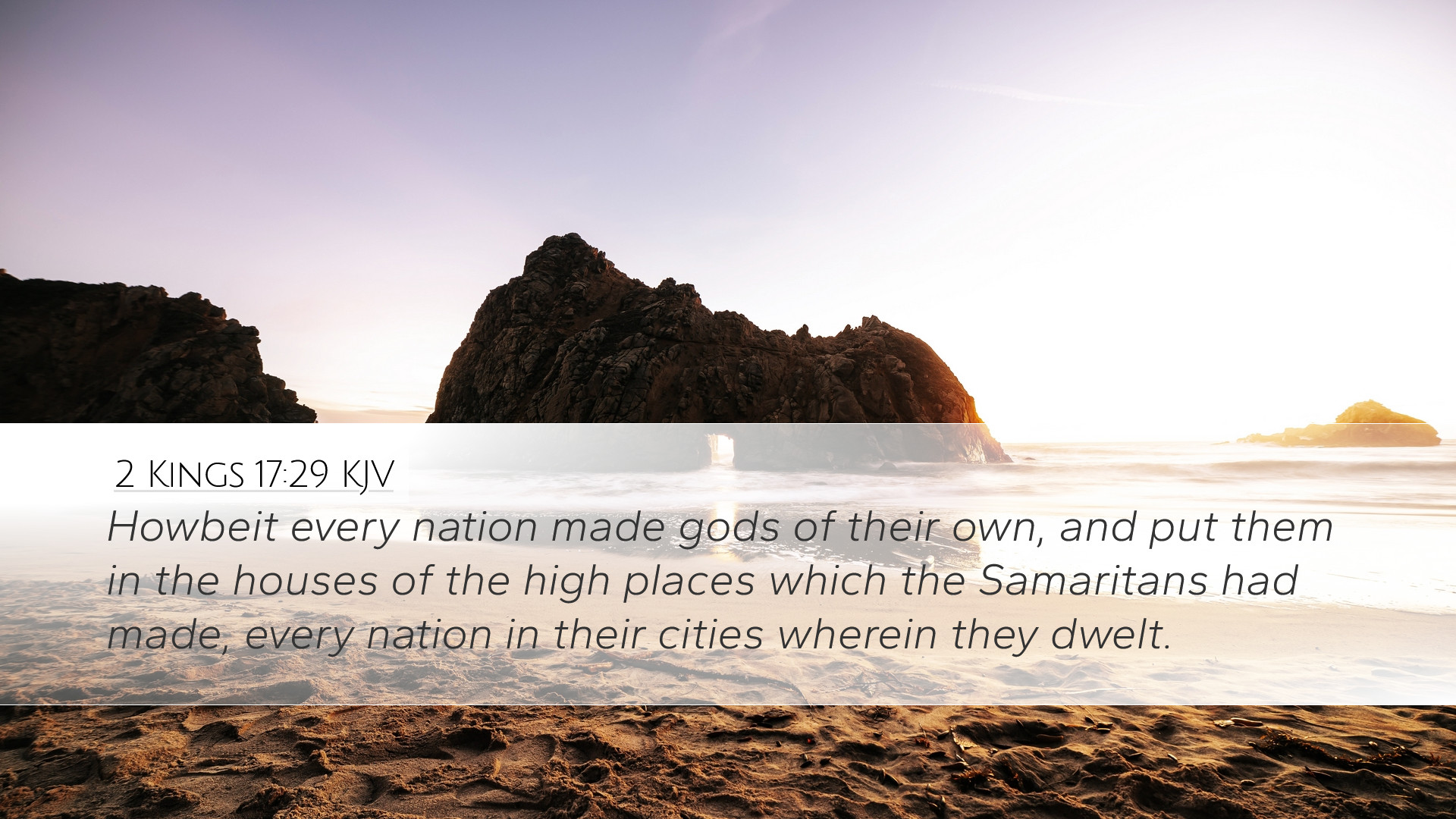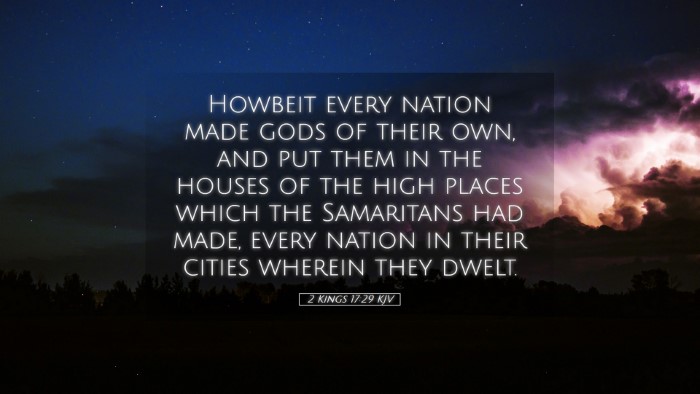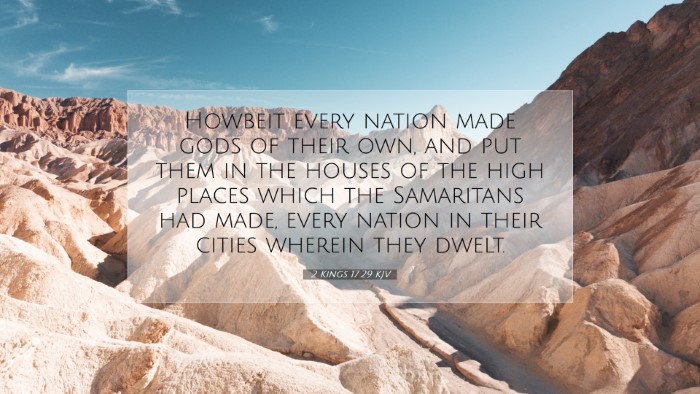Commentary on 2 Kings 17:29
Bible Verse: "Howbeit every nation made gods of their own, and put them in the houses of the high places which the Samaritans had made, every nation in their cities wherein they dwelt." (2 Kings 17:29, KJV)
Introduction
This verse captures a pivotal moment in the history of Israel, especially highlighting the spiritual malaise that followed the Assyrian conquest and exile. The actions described reveal the syncretism prevalent among the various peoples settled in the land, as they attempted to blend their indigenous religious practices with the remnants of Israelite worship.
Historical Context
The backdrop of 2 Kings 17 is a tumultuous period for Israel and Judah, marked by political instability and moral decay. After the fall of the northern kingdom to the Assyrians, many Israelites were exiled, and foreign peoples were brought in to repopulate the land. This resulted in a mixture of cultures and religions, leading to widespread idolatry.
Matthew Henry's Insights
Matthew Henry emphasizes the spiritual declension of the Israelites and how their former leaders' idolatrous practices laid the groundwork for this corruption. He highlights that instead of returning to the true worship of Yahweh, the nations settled in Israel chose to create their own gods, reflecting a profound misunderstanding of divine worship.
- Idolatry's Impact: Henry notes that idolatry is not merely the act of worshipping physical statues; it encompasses any deviation from pure worship that God commands.
- The Role of High Places: The high places were centers of syncretic worship where both Israelite practices and pagan rituals coexisted, which grieved God deeply.
Albert Barnes' Commentary
Albert Barnes builds on this syncretism, outlining that the creation of personal gods signifies a departure from the faith that was meant to unify the Israelites. These actions illustrate the broader theme of neglecting God’s commandments.
- The Nature of Man's Worship: Barnes points out that humanity’s tendency is to fashion a god that suits their preferences, often leading to a compromise of biblical faith.
- Spiritual Confusion: The verse represents a turning point where each nation sought to preserve its heritage, forsaking the singular worship of the One True God, leading to widespread spiritual confusion.
Adam Clarke's Perspective
Adam Clarke provides a thorough analysis of the theological implications of these actions. He stresses the consequences of abandoning the covenant relationship with God, leading to fragmented worship and moral decay.
- Covenant Neglect: Clarke posits that neglecting the covenant not only affected the exiled Israelites but also the cultural identity of the nations that replaced them.
- Religious Pluralism: He highlights that this blending of worship reflects the early inklings of religious pluralism, which continues to pose challenges to authentic faith in contemporary society.
Theological Reflections
The actions described in 2 Kings 17:29 prompt profound theological reflection for today's believers. It raises questions about the nature of true worship and the dangers of syncretism faced by modern communities.
- Authenticity in Worship: Believers are challenged to examine their own practices—are we crafting a god that fits our lifestyle, or are we submitting to the God revealed in Scripture?
- The Danger of Compromise: The history of Israel serves as a warning against compromising faith for cultural acceptance or personal convenience.
Conclusion
In summary, 2 Kings 17:29 illustrates a poignant moment in the history of Israel, reflecting themes of idolatry, syncretism, and spiritual decay. The insights from commentators like Matthew Henry, Albert Barnes, and Adam Clarke provide a rich framework for understanding this passage. It serves as a reminder for scholars, students, and pastors alike to engage deeply with the text and to reflect on the contemporary implications of straying from authentic worship.


